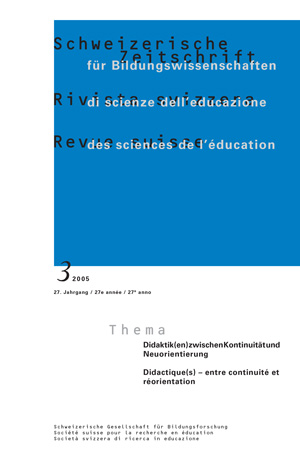Re-considering transposition phenomena from a comparative didactics point of view
Abstract
In this paper, didactical transposition phenomena are regarded as a main issue in the study of teaching and learning processes. The Didactical Transposition Theory was developed in the 1980’s by Y. Chevallard, in order to explain how school mathematics may differ from the body of knowledge arising from the mathematicians’ community. Meanwhile, other didactics have attempted to adapt this theory to their own subject matter. Within the didactics of mathematics field, Chevallard’s theory was broadened to an anthropologic approach of the didactic practices according to its epistemological rationale. Today, comparative didactics attempts to question both fundamental features and some remaining blind spots in this theory. More particularly, this paper focuses on the “personalization” and “contextualization” phenomena for the purpose of studying the didactical interactions in ordinary classes.
License

This work is licensed under a Creative Commons Attribution 4.0 International License.



